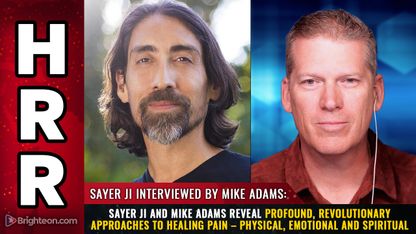
Researchers from U-M's Institute for Healthcare Policy and Innovation (IHPI) assessed a sample of 2,249 participants aged 50 to 80 across the U.S. regarding their readiness for different kinds of emergencies. The responses suggest that older adults and their families or carers need to be better prepared for times of crisis.
The nonprofit group American Association of Retired Persons (AARP) and U-M's academic medical center, Michigan Medicine, had also supported the poll.
Older adults are ill-prepared for emergencies
The poll results indicated that 22 percent of the respondents experienced at least one major disaster or emergency lasting more than a day in 2018. But more than half of them reported experiencing at least one such event during their lifetime.
Despite these figures, the researchers found that only 44 percent of the respondents had signed up to receive alerts through their community's emergency alert system. Less than a third or just 29 percent of them had a stocked emergency kit ready and only 27 percent had a generator on hand.
The researchers also found that only 40 percent of the respondents had reported talking to their family members about possible emergency plans in case of sudden evacuation orders.
Alison Bryant, the senior vice president for research at AARP, emphasized the importance of adequate disaster preparedness in households that have older members. Older adults might have potential health and mobility challenges that need to be considered in planning for evacuations, she added.
Taken together, the poll's findings indicate that older adults are not fully prepared for emergency situations. Preeti Malani, the poll's director and the chief health officer at the U-M Medical School, notes that time spent preparing in the present can protect one's health and finances in the future should emergencies happen.
Programs on disaster preparedness and response can also use the results of the poll to better help older adults prepare for emergencies, added Sue Bell, a disaster preparedness specialist from the U-M School of Nursing and a member of the poll team.
Preparing for emergencies in old age
Despite the alarming results of the poll, it isn't too late for older adults to start preparing for emergencies. Here are seven action steps to take for a disaster preparedness plan that ticks all the important boxes, according to experts and disaster management specialists:
- Sign up for an emergency alert system – In case of emergencies, rapid information dissemination can help people get to a safer place, so signing up for these alerts is important.
- Choose a designated meeting place for family members – Designate a specific location as a meeting place for members of the household in case of emergencies that require residents to evacuate. Assign one near the house and another outside the neighborhood.
- Keep portable batteries, solar chargers and radios on hand – Communication and information are both essential during emergencies, so invest in solar cellphones, chargers or hand-crank radios. Keep this equipment in a spare bag and store enough batteries, too.
- Prepare a home emergency kit – This kit should include gallons of potable water, nonperishable food, a first aid kit, dust masks, local maps, a toolkit and a whistle. The kit should also have health essentials for older adults, such as spare reading glasses, a blanket and a foldable cane, if needed.
- Invest in a generator – Generators are essential for older adults using medical equipment that requires electricity. (Related: Alternative energy sources to consider when SHTF.)
- Keep pantries stocked – Maintain at least a seven-day stock of food and home remedies in case there aren't other members of the household capable of getting groceries.
- Set up an emergency financial fund – Set aside a sum of money for an emergency fund. This should be enough to cover anything from food supplies to medical equipment.
Older adults are one of the most at-risk populations in times of crisis or emergencies, but adequate preparation can help minimize that risk considerably.
Sources include:
Please contact us for more information.























